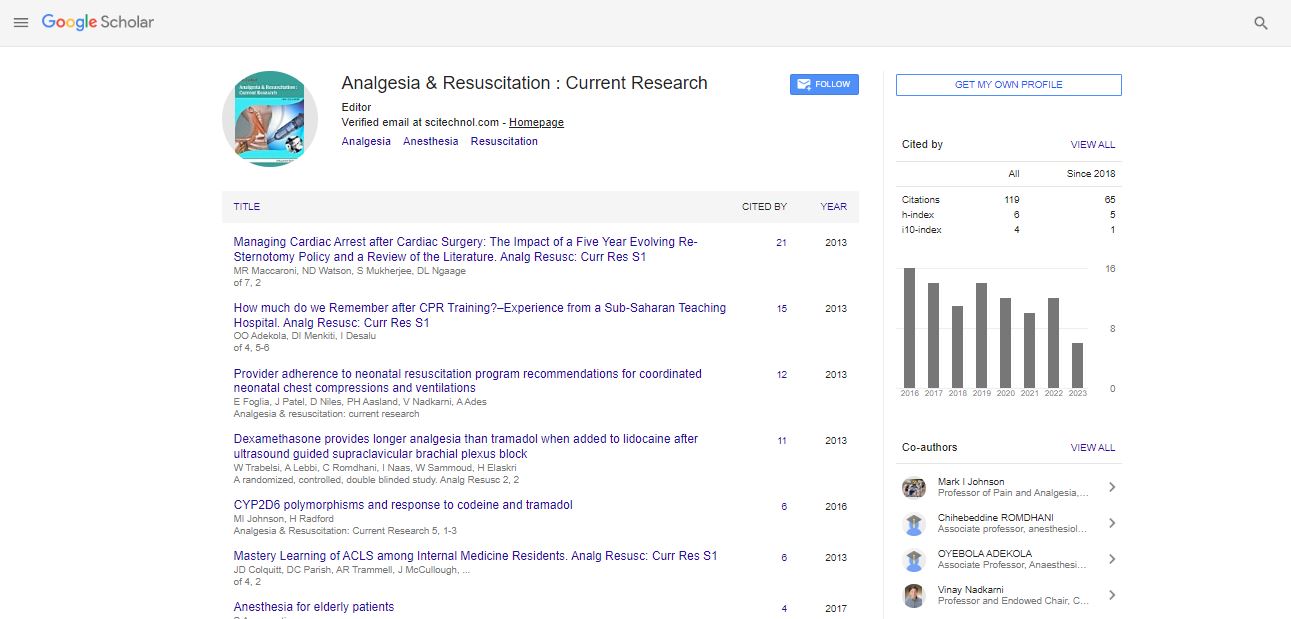Five steps to social responsibility in pain management
David Nagel
New Hampshire Pain Group, USA
: Analg Resusc: Curr Res
Abstract
The practice of pain management within and without America is challenged by a number of social factors. Health care reform demands increased access to services at a lower cost. Corporate take-over of medical practice increasingly moves the locus of control of clinical decisions from the bedside to the corporate boardroom. Insurers increasingly challenge all medical decisions. These factors and more challenge the viability of the pain management practice forcing pain physicians to choose between the needs of the bottom line and the needs of the patient. In this scenario, too often the patient suffers needlessly. In the midst of these challenges, it is imperative that the pain physician do what the Hippocratic Oath admonishes him and her to do, to advocate for the patient. In this discussion, we will examine these challenges with a focus on five issues: 1. Define what pain management actually is ? 2. Define the various social entities that are involved in pain management and what their roles are. 3. Develop a patient centered, inter-disciplinary focus in the pain management practice. 4. Take a look at what the role of evidence based medicine should is and what it should be, and how this affects pain management. 5. Take a look at how the needs of the bottom line must be kept in proper perspective and what happens to the patient when this does not happen.
Biography
David Nagel comes to the field of pain management as a specialist in physical medicine and rehabilitation. He has been practicing pain management for 27 years in private practice in Concord, New Hampshire. He has been heavily influenced by the experience of his mother who was ravaged by the effects of rheumatoid arthritis and its treatment. From her, he learned the importance of a patient centered plan of care with a focus on inter-disciplinary cooperation and continuity of care. He also learned how patients suffer needlessly when this does not happen. His experience led him to a role of social advocacy. He is a founding member of the pain management and the prescription drug abuse task force for New Hampshire. He is the current chairman of the New Hampshire Pain Group and a member of the Pain Action Alliance to Implement a National Strategy. He has given numerous talks on the subject. He is also the author of Needless Suffering; A Critical Look at Pain Management in America to be released later this year.
 Spanish
Spanish  Chinese
Chinese  Russian
Russian  German
German  French
French  Japanese
Japanese  Portuguese
Portuguese  Hindi
Hindi 
